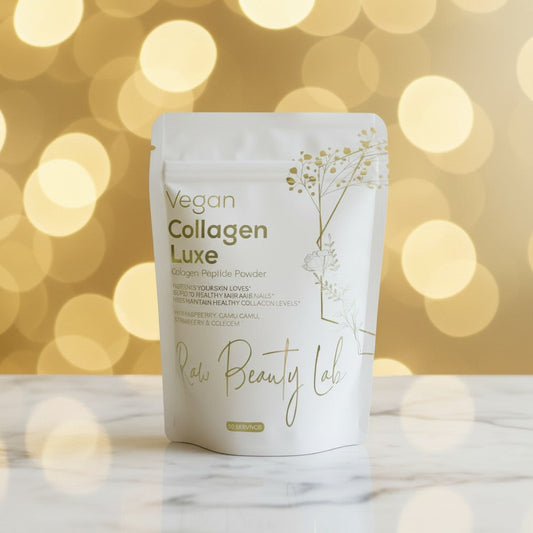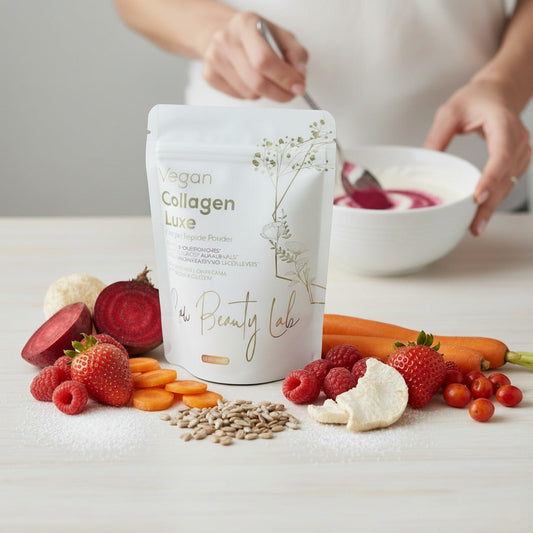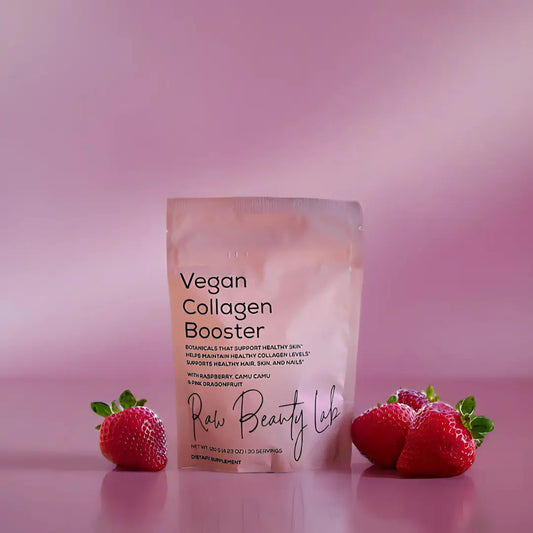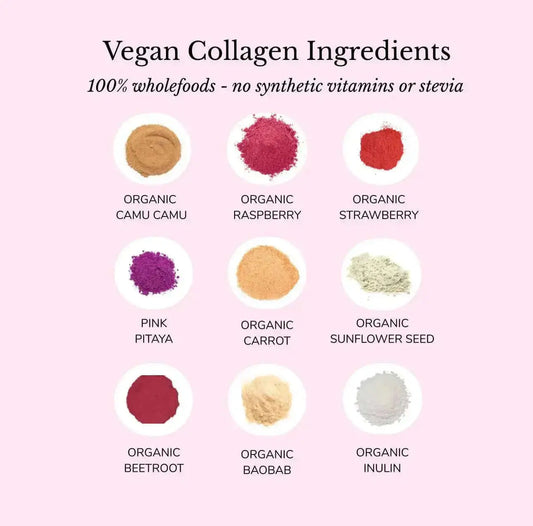Table of contents
When it comes to achieving glowing, balanced, and healthy skin, hydration is key. Two titans in the skincare arena that promise to drench our skin in much-needed moisture are hyaluronic acid and glycerin. So, how do you choose between the two? Let's dive into the benefits of each, explore some supporting skincare actives, and help you make the right choice for your skin.
The Lowdown on Hyaluronic Acid
Hyaluronic acid is like that friend who never forgets your birthday—reliable, consistent, and always there when you need support. This naturally occurring substance in our skin holds up to 1000 times its weight in water (1), making it a superhero for retaining moisture. This capability ensures your skin remains plump, hydrated, and even aids in reducing the appearance of fine lines.
Moreover, hyaluronic acid works well with other skin-loving ingredients, like vitamin C. Studies have shown that vitamin C helps boost the skin’s collagen production, enhancing your skin's firmness and elasticity (2). By pairing hyaluronic acid with a vitamin C serum, you not only hydrate but also protect your skin against environmental nasties, resulting in that sought-after luminosity.
Interested in supporting your skin from the inside out? Consider adding Vegan Collagen - Vollagen® to your routine. It provides plant-based collagen support, keeping your skin looking youthful and vibrant.
Getting to Know Glycerin
Glycerin might not have the same fanfare as hyaluronic acid, but don’t underestimate its power. This humble, plant-derived ingredient is a humectant, meaning it draws moisture into the skin and locks it there. It's like a tiny reservoir working tirelessly to keep your skin supple and smooth.
Glycerin is particularly beneficial if your skin is sensitive or prone to irritation. Its soothing properties help fortify the skin's natural barrier, reduce redness, and enhance overall resilience. Glycerin's ability to harmonize with other ingredients earns it a place in many inclusive skincare formulations.
Hyaluronic Acid vs Glycerin: Which One Should You Choose?
Choosing between hyaluronic acid and glycerin is like choosing between your favorite tea and coffee—they both hydrate but offer slightly different benefits. If you’re looking for an intense hydration boost combined with anti-aging support, hyaluronic acid might be your go-to. For those with sensitive skin or who prefer a gentle yet effective moisture strategy, glycerin is a solid ally.
Peptides and Natural Retinol Alternatives: Friends to Hydration
While hydration is critical, ingredients like peptides and natural retinol alternatives can provide additional support against signs of aging.
Peptides for Aging Skin: Peptides are small proteins that penetrate the skin to signal the production of collagen. This can lead to firmer and younger-looking skin. When layered with hyaluronic acid or glycerin, peptides can boost your moisturizing routine, further improving your skin's texture and tone.
Natural Retinol Alternatives: Retinol is renowned for its anti-aging prowess, but it can be too harsh for some skin types. Natural retinol alternatives, like bakuchiol, offer similar benefits without irritation. Incorporating these alternatives can enhance cell turnover, leading to a smoother, more radiant complexion while hydrating with hyaluronic acid or glycerin.
The Rise of Vegan Skincare Actives and Adaptogens
In recent years, vegan skincare actives have gained momentum, promising ethically sourced and effective products. Incorporating vegan ingredients often means that formulas are kinder to the skin and environment, aligning with many modern beauty philosophies.
Moreover, adaptogens, known primarily as stress-reducing compounds, are making waves in skincare for their ability to calm the skin and reduce inflammation. These botanical powerhouses work in harmony with hydrating elements like hyaluronic acid and glycerin to promote balance.
Exploring vegan skincare actives and adaptogens could be a game-changer, especially for those with environmental concerns or who prefer a plant-powered skincare regimen.
Final Thoughts
Ultimately, the choice between hyaluronic acid and glycerin hinges on your personal skin needs. Both offer unique benefits that can transform your skincare routine. Whether you crave the intense moisture of hyaluronic acid or the soothing touch of glycerin, incorporating these elements into your daily regime could be the key to healthy, luminous skin.
Stay curious, explore different ingredients, and don’t be afraid to mix and match according to your skin’s mood. For more plant-based beauty boosters, check out Raw Beauty Lab where endless skin possibilities await.
References:
- Papakonstantinou, E., Roth, M., & Karakiulakis, G. (2012). Hyaluronic acid: A key molecule in skin aging. Dermato-Endocrinology, 4(3), 253-258.
- Humbert, P. G., Fanian, F., Lihoreau, T., Jeudy, A., & Muret, P. (2003). The effect of Vitamin C and its derivative magnesium ascorbyl phosphate on skin cells. Journal of Cosmetic Dermatology, 2(2), 144-149.






